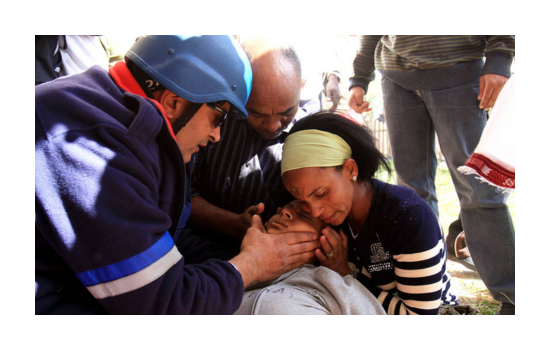Yehudah Mirsky
Unherd, Jan. 17, 2024
“Hypocrisy is at work here, of course, but that is almost trivially beside the point. Genocide is more than a justifiably hideous characterisation: as a legal category, as rhetoric and policy framing, it is a doomsday weapon of epic proportions. It is, in its heightening ignominy to the nth degree, almost uniquely totalising.”
Since the early 1600s, the Bavarian town of Oberammergau has, once a decade, mounted a massive Passion Play, dramatically re-enacting Jesus’s trial and crucifixion. Spread over five hours and with a cast of thousands, it has for centuries attracted audiences from far and wide. Central to the production, and to the Play’s notoriety, was the Jews’ thoroughgoingly demonic role in Jesus’s murder, well beyond the plain sense of the Gospels. Modern antisemites loved it, Henry Ford and Josef Goebbels included.
In recent years, however, the people of Oberammergau have significantly reworked the play; Jesus and the Apostles are now clearly Jewish themselves, the Judaism of Jesus’s time is presented with nuance and understanding, and crucially, Roman imperial power is depicted as pervasively as it was. Yet though Oberammergau has changed, the Passion Play endures — most recently on stage last week at the International Court of Justice, northwest of Bavaria, in the Hague. There, South Africa initiated proceedings against the State of Israel, alleging that it is actively committing genocide in its war in Gaza.
The texts being invoked are no longer the Gospels but treatises of international law; the figure in the dock is not the traditional Jew living by centuries-old laws, but a sovereign, in many ways, secular state, with considerable military and political power. Yet again, the Jews are charged with being the criminal outliers of global society; whether they are, in a devilishly complicated situation, acting wisely or unwisely, proportionally or disproportionately, is beside the point. Their guilt is total and collective. … [To read the full article, click here]


